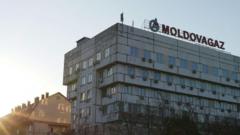Despite these challenges, Transnistria’s President Vadim Krasnoselsky has sought to reassure his fellow citizens, declaring, “We will not allow a societal collapse.” The region, known for being a pro-Russian enclave for over three decades, now finds itself grappling with the reality that its previously vibrant power station, which sold electricity to Moldova, stands silent. This loss has not only led to factory closures and unheated homes but has also introduced a sense of uncertainty regarding the future of this unique territory.
As conversations about the political fate of Transnistria grow louder, the local population's resilience is tested. With Russian support wavering, essential services crumble, and everyday life enters a precarious phase, the psychological toll intensifies. Residents move through their communities, checking heaters that have become vital lifelines amid the chaos.
What will the implications be for governance and social cohesion in this breakaway region as it endures what could be a long winter without reliable energy? These pressing questions remain as Transnistria maneuvers through an evolving crisis.
As conversations about the political fate of Transnistria grow louder, the local population's resilience is tested. With Russian support wavering, essential services crumble, and everyday life enters a precarious phase, the psychological toll intensifies. Residents move through their communities, checking heaters that have become vital lifelines amid the chaos.
What will the implications be for governance and social cohesion in this breakaway region as it endures what could be a long winter without reliable energy? These pressing questions remain as Transnistria maneuvers through an evolving crisis.





















